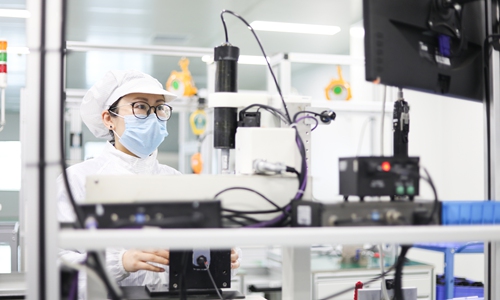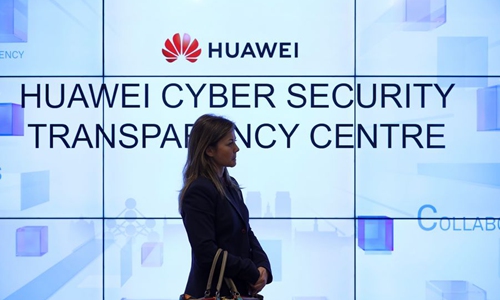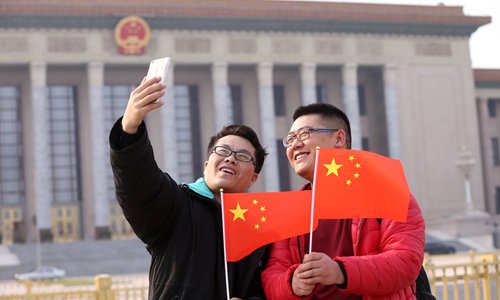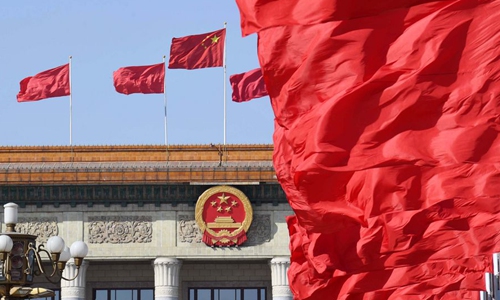Countermeasures against US restrictions should be discussed at China’s two sessions

Photo: cnsphotos
As much as we hate to admit it, there are growing signs of a high-tech decoupling between the US and China even as the coronavirus pandemic rocks global trade.
Certain senior US officials have recently agreed on new measures aimed at blocking Chinese tech businesses from purchasing "certain optical materials, radar equipment and semiconductors, among other things" from the US, Reuters reported on Thursday.
And that is just the latest development in the US attempt to decouple its high-tech supply chains from China, which lays bare Washington's stubborn and confrontational mindset. The fact that those US politicians are unlikely to abandon their stubborn political bias should serve as a reminder for us to contemplate what countermeasures we can take in retaliation.
We suggest the National People's Congress (NPC), China's top legislature, and the National Committee of the Chinese People's Political Consultative Conference (CPPCC), China's top political advisory body, establish special teams to discuss potential countermeasures in response to the mounting US pressure on Chinese high-tech companies, which is unlikely to be reversed in the short term.
While China has postponed the annual sessions of the NPC and CPPCC, known as the two sessions, for the sake of epidemic control and prevention, the preparation of relevant countermeasure proposals to be submitted to the two sessions could begin now.
If some in Washington continue to push for a high-tech break with China, China would have no choice but to strike back with similar measures. And the upcoming two sessions would be the perfect opportunity to fully deliberate and discuss this topic while also showing China's determination to take action amid its high-tech containment.
Moreover, such proposals at the two sessions may invite wide discussions of countermeasures among Chinese companies and related industries, which are not only the most affected parties but also have the most knowledge of China's high-tech development. Their opinions will help authorities make scientific and rational plans while looking at the bigger picture.
There have been persistent calls from industrial insiders for countermeasures against the US' high-tech decoupling. Huawei Rotating Chairman Xu Zhijun recently asked, "Why can't the Chinese government ban the use of 5G chips, or 5G chip-powered base stations, smartphones and other smart devices produced by American businesses based on the same cybersecurity reasons?"
Other possible countermeasures to exert pressure on US tech businesses may include: conducting in-depth national security reviews of US companies; prohibiting US companies from engaging in business activities that China deems may threaten its national security; and banning Chinese enterprises and individuals from purchasing services, products and technologies provided by US companies on China's sanctions list.



